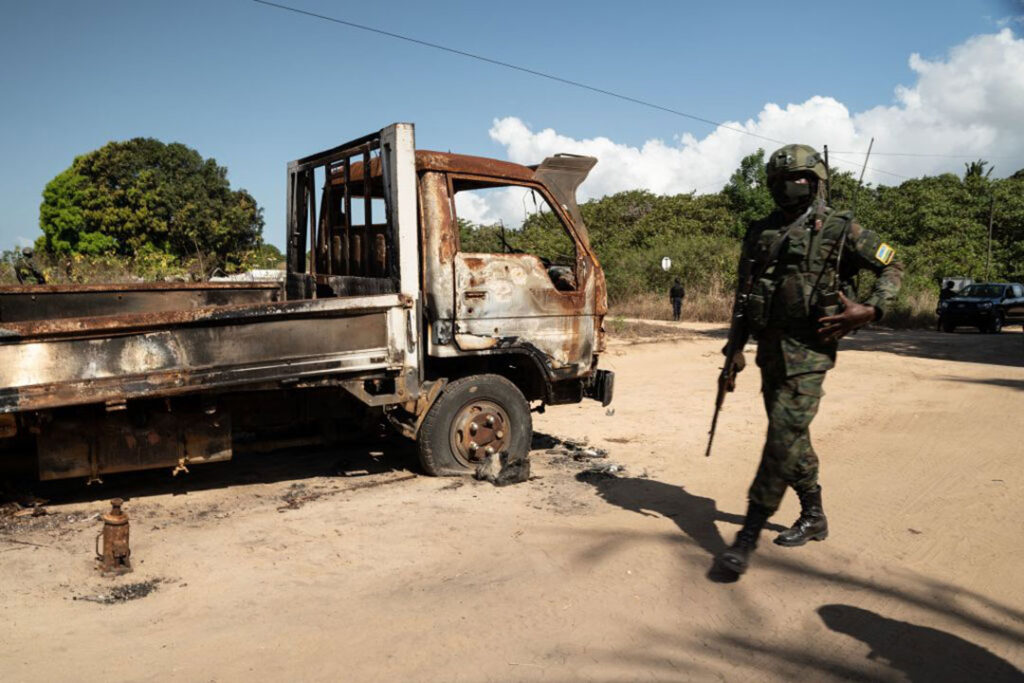ADF STAFF
An extremist organization linked to the Islamic State group used improvised explosive devices (IEDs) in six attacks on military patrols in Mozambique’s Cabo Delgado province over a three-week period ending Oct. 1.
The attacks in the Macomia and Mocímboa da Praia districts marked a significant uptick in Ansar al-Sunna’s use of IEDs in an insurgency that started in 2017, according to Mozambique’s Zitamar News.
For years, the group typically used small arms during assaults on military and civilian targets, but that began to change when it started using roadside bombs, typically rudimentary, pressure-activated devices, in 2021.
The attacks grew more sophisticated in July, when a remote-controlled IED badly damaged a Mozambique Defence Armed Forces armored vehicle in Macomia.
Although the IEDs used in the more recent attacks in Macomia and Mocímboa da Praia seem to be the pressure-activated type, they let Ansar al-Sunna and other groups minimize their own casualties while creating potentially deadly chaos.
According to Zitamar News, the IED attacks mostly target two roads. One, between Mbau and Limala in Mocímboa da Praia, provides access to the Rwanda Defence Force base at Mbau. The other one, between Quiterajo and Mucojo in Macomia, is necessary for movement along the coast, where insurgent activity has been concentrated recently.
Both routes are surrounded by forests, allowing insurgents to plant IEDs undetected.
The invisible, persistent threat of driving over a bomb is taking a psychological toll on Mozambican troops who have had no training in this kind of warfare, a local source told Cabo Ligado, which is published by the Armed Conflict Location & Event Data Project (ACLED).
‘No One in the Streets’
The town of Mocímboa da Praia was badly damaged due to the insurgency. Florian Morier, a worker with the United Nations Development Program, recently visited the area for the first time. After leaving the airport, Morier’s team was driven past the rubble of homes and other buildings destroyed by fighting.
“We expected this level of dilapidation,” Morier said in a new Java Discover documentary titled “Mozambique: From Violence to Violence.” “Now it’s interesting. You can see no one in the streets.”
Morier’s job is immense as most buildings in the area need to be rebuilt. The town has no services, water or electricity. He visited a church destroyed by a large bomb.
“This gives a good indication of the degree of perseverance and desire to destroy,” Morier said. “In fact, it’s the whole city. I didn’t see a building that was spared in the end.”
It will take millions of dollars and companies willing to work in a war zone to rebuild the city.
In Palma, Rwandan Soldiers stay in a large facility vacated by French oil company Total after hundreds of militants stormed the city in 2021.
“We beat them in their strongholds, but the insurgents have rebuilt their forces,” a Rwandan Soldier said in the documentary. “The terrorists have changed their tactics. They are more mobile than before. It can’t go away overnight.”
According to ReliefWeb, 116,000 residents returned to Palma in 2022 and about half of its private businesses reopened.

